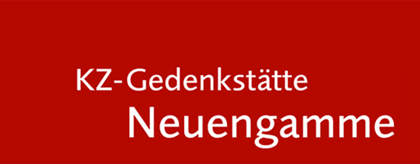05/15/2022 Event
Call for Papers for the Conference: "Welfare policy and social racism under Nazi rule"
We are looking for speakers for the conference "Welfare policy and social racism under Nazi rule" on the 6th/7th of October 2022 at Centre for Historical Studies at the Neuengamme Concentration Camp Memorial until the 18th of July. The conference aims to examine the surveillance, disciplinary and coercive measures implemented by Nazi welfare for the benefit of the Volksgemeinschaft, or people’s community, to ascertain the extent to which it co-operated with the police and the judiciary, and to consider the impact thereof.
Under Nazi rule, social welfare work was structured according to eugenic and socio-racist criteria. The distinction between ‘deserving’ and ‘undeserving’ recipients of state social benefits already made before – and then during – the Weimar Republic was given an added dimension by the ‘racial hygiene’ focus of welfare. Indeed, the Volkskörper, or national body, was to be ‘cleansed’ and ‘inferiors’ eradicated. The National Socialist perception of ‘asociality’ and criminality as hereditary traits provided the mainstay for eugenic measures aimed at those deemed Gemeinschaftsfremde, or ‘alien to the community’. More and more persons stigmatised as ‘anti-social’ were forcibly sterilised pursuant to the ‘Law for the Prevention of Hereditarily Diseased Offspring’. They were also threatened with incapacitation, forced confinement and compulsory labour in homes, workhouses, closed Bewahranstalten (retention facilities) and camps. Public welfare services, welfare institutions, youth, labour and health offices all worked closely with the police and the judiciary in order to deprive those concerned of their rights. Welfare therefore played a key role in the exclusion and persecution of those stigmatised as ‘anti-social’. In doing so, it also attributed a deviance to those affected that was to a large extent shaped by gender as a category.
Under the provisions of the ‘Fundamental Decree on Preventive Crime Control’, from 1937 the police had the powers to arrest those persons throughout the Reich who posed a threat to the general public as supposed ‘career criminals’ or through their allegedly ‘anti-social behaviour’. They were placed in police ‘preventive detention’ and, as a result, sent to concentration camps for an unlimited period of time. The welfare authorities and labour offices supplied the names for arrest campaigns targeted at the allegedly ‘work-shy’. Indeed, the welfare authorities regarded concentration camp imprisonment partly as a cost-saving means of getting rid of unpopular recipients of welfare support and those persons considered deviant. But partly they also competed with the police for the labour of the inmates and those detained.
The conference aims to examine the surveillance, disciplinary and coercive measures implemented by Nazi welfare for the benefit of the Volksgemeinschaft, or people’s community, to ascertain the extent to which it co-operated with the police and the judiciary, and to consider the impact thereof.
Papers are welcome on the following aspects in particular:
- Concepts, ideological precursors and foundations of eugenic or social racist persecution
- Eugenics and social racism within the Nazi welfare system
- The role of work, family, sexuality, age and especially gender in welfare and their significance in elaborating the notion of Volksgemeinschaft
- Welfare and compulsory education systems in the network of National Socialist persecution authorities, in which a large number of other institutions and organisations were involved alongside the police and the judiciary
- Overlaps between ‘anti-social’ persecution and other strands of Nazi persecution policy, including the relationship between the persecution of ‘anti-social elements’ and ‘career criminals’, forced sterilisation procedures, and the persecution of the Sinti and Roma
- The European dimension of the persecution of ‘anti-social’ elements
- (Dis)continuities of socio-racist Nazi persecution, especially with regard to those affected, those involved in the crimes, and the subsequent use of relevant welfare institutions
- Transgenerational impact of the persecution of persons stigmatised as ‘anti-social’
- The history of persecution as ‘anti-social’ persons in the present-day educational and mediation work against the backdrop of ongoing stigmatisation and marginalisation
The plan is to publish individual lectures from the conference in Issue 5 of the journal Beiträge zur Geschichte der nationalsozialistischen Verfolgung (Contributions to the History of Nazi Persecution), which is scheduled for autumn 2024. Scholars wishing to contribute to the conference on one of the topics outlined above are warmly invited to attend and participate. The lectures are to be keynote speeches in character, to be followed in each case by a discussion.
We would ask all those interested to send us an abstract of their intended lecture (max. 600 words) and a short biography by 18 July 2022 at the latest to the following email address: amina.edzards@gedenkstaetten.hamburg.de.
The speakers selected will be notified by 8 August 2022. Travel and accommodation costs for the speakers will be covered.
The conference is organised by the Foundation of Hamburg Memorials and Learning Centres Commemorating the Victims of Nazi Crimes, in co-operation with the exhibition project on ‘Victims persecuted as “anti-social elements” and “career criminals” under Nazi rule’ organised by the Memorial to the Murdered Jews of Europe and the Flossenbürg Concentration Camp Memorial.
The conference is to be held primarily in German. Interested parties may now already register for participation. Contact : Amina Edzards, Neuengamme Concentration Camp Memorial, Centre for Historical Studies, phone: +49 40 428131-522, email: amina.edzards@gedenkstaetten.hamburg.de

